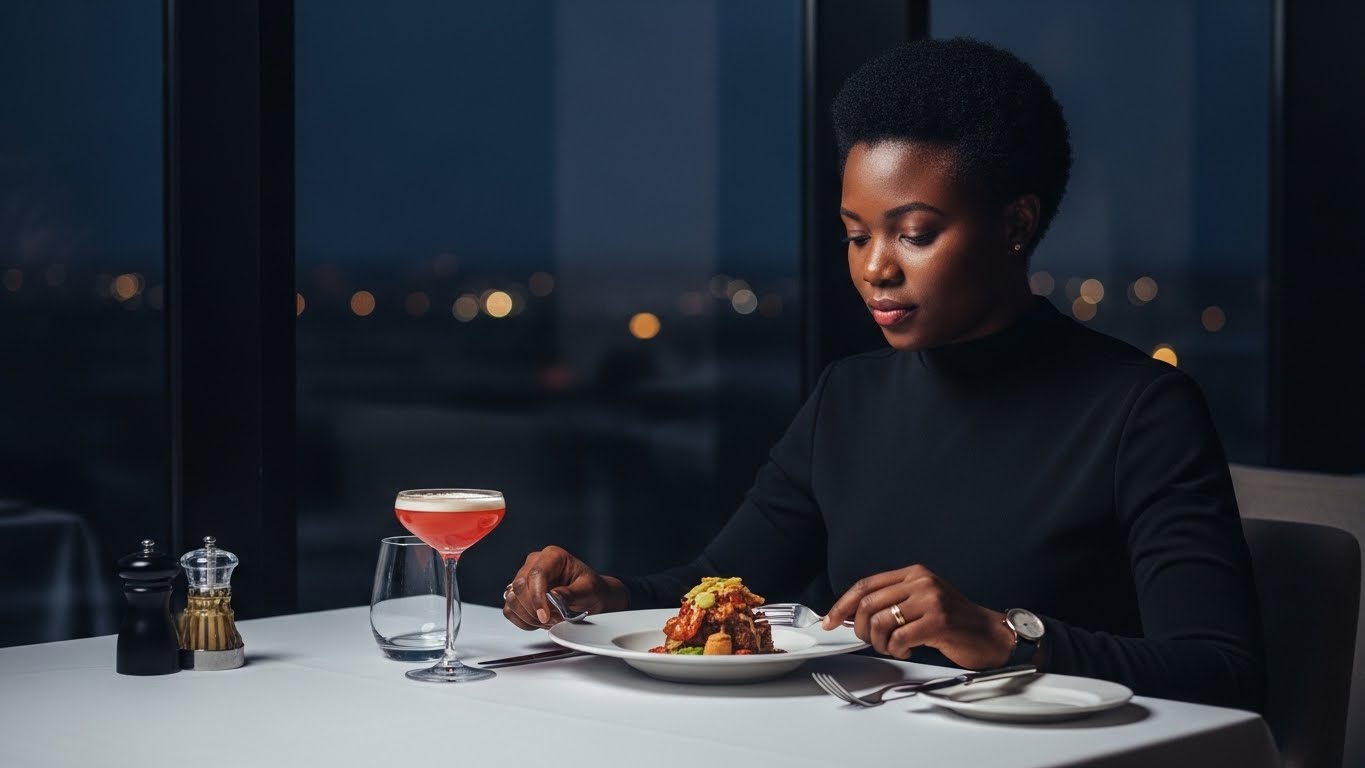Dining alone in Nigeria once carried an unspoken stigma. Restaurants existed for reunions, romantic dates, family outings, and business meetings. Anyone seated alone risked appearing awkward or abandoned.
That perception has shifted. Across Lagos, Abuja, and Port Harcourt, a new cultural mood is emerging. A table for one is no longer something to hide. It has become a quiet symbol of achievement, self-respect, and refined taste. What society once viewed as a sign of loneliness has rebranded itself as luxury.
The soft life economy meets solitude
Nigeria’s Generation Z and upwardly mobile millennials have rewritten the emotional script of consumption. The soft life movement rejects stress and celebrates ease and intentional living. It gives people permission to prioritise themselves without apology.
Dining alone fits effortlessly into this ethos. A quiet table, a neatly plated meal, a customised drink and the freedom from unwanted conversation all represent emotional control. They show that your own company is enough. No audience is required. No validation is needed.
On Instagram, solo dining in Lagos has evolved into its own visual genre. Moody lighting, polished counters, artful dishes and reflective cocktails now frame solitude as a desirable experience. Loneliness has been reframed as a feeling worth capturing.
Social media turned solitude into aspiration
Older Nigerians once avoided eating alone because they feared public opinion. Younger Nigerians seek solo visibility instead. Food bloggers presented solo date nights as declarations of confidence. Influencers framed restaurant tables as personal sets, intimate and beautifully curated. TikTok creators filmed themselves ordering meals for one, often captioned with lines such as “Because I deserve it.”
Alone became cinematic. The luxury lies not in the cost of the meal but in the choice to enjoy it.
Why the Nigerian context matters
Nigeria is a highly communal society. Many people grow up in shared homes, navigate crowded commutes and believe experiences feel more meaningful when shared. Choosing solitude within such a culture feels radical. That is precisely why it resonates.
A table for one in Lagos or Abuja is more than a dining choice. It is a moment of recovered personal space in cities that rarely pause. It represents a controlled moment inside environments that often feel chaotic and demanding. A quiet lunch becomes a form of calm.
Restaurants have adapted
Hospitality brands have responded quickly to this cultural shift. Upscale bars now position their single seats to face scenic views or striking interiors. Chef’s tables elevate solitary meals into theatre, allowing diners to engage with the artistry of the kitchen. Many restaurants have introduced tasting experiences designed specifically for one, while staff training quietly removed the once-frequent question, “Will someone join you?”
Solo diners now receive the same attentiveness once reserved for couples and groups. Eating alone has become a sign of intention rather than isolation.
The loneliness rebrand
Globally, marketers have begun exploring the emotional appeal of solitude. Japan created “party for one” dining. South Korea normalised solo meals long before the rest of the world caught on. Nigeria is developing its own version, and it is neither timid nor understated. It is chic, aspirational and rooted in self-worth.
Here, solo dining is not about escaping people. It is about rising above the noise, even briefly. In a society that values visibility, choosing to be visible on your own terms becomes a form of luxury.
A new consumer insight
The rise of the table for one reflects a deeper psychological shift. People no longer want experiences that prove something to others. They want moments that affirm themselves. They seek validation rather than applause, and comfort rather than performance.
This trend offers an important lesson for marketers. Alone does not mean lonely. It can mean available to oneself. Brands that understand this shift sell more than food or ambience. They sell permission to enjoy autonomy without stigma.
Where the trend goes next
If the movement continues, Nigeria could see restaurants designing dedicated solo date menus, hotels developing bespoke single-person staycations and cinemas offering premium one-seat sections. Advertising may begin to focus on individual agency rather than relationship status.
All of this reflects a quiet truth. In a demanding city like Lagos, the ability to sit, eat, drink and breathe without pressure is its own form of wealth.
The table for one has changed more than dining behaviour. It has redefined what luxury means in a crowded world. Luxury is no longer the presence of many people. It is the presence of calm.
ALSO WATCH MARKETING EDGE ONTV






Comment
No comments found.